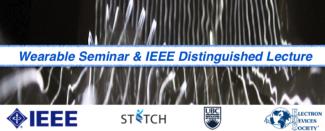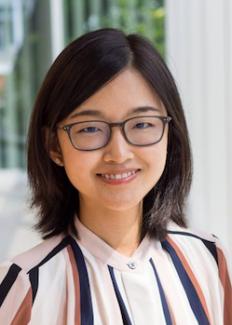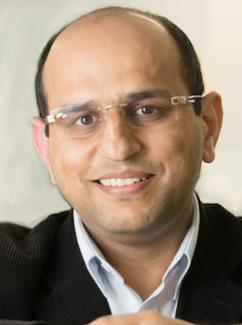Stitch Wearable Seminar & IEEE Distinguished Lecture
November 1, 2019, 1:00 pm to 3:00 pm

Sensing the Brain during Mechanical Trauma: from Biomechanics to Functional Outcomes

Prof. Lyndia Wu
Department of Mechanical Engineering, UBC
Abstract - Mild traumatic brain injury, commonly known as concussions, is a major public health problem. One of the main concerns is that sports players sustaining repeated head impacts and brain injuries are at risk for long-term brain changes. In recent years, wearable inertial sensors have been applied to measure mechanical inputs during head impacts, and these mechanical parameters are correlated with injury outcomes. However, there is a lack of objective and quantitative outcome measures for the correlation. In this talk, Dr. Wu will discuss past and current efforts to develop and apply wearable sensors in quantifying the input-output relationship in brain trauma.
Biography - Dr. Lyndia Wu obtained her BASc in Engineering Science at the University of Toronto, MS and PhD in Bioengineering at Stanford University, and is now leading the Sensing in Biomechanical Processes Lab (SimPL) at UBC. Her PhD work focused on developing an instrumented mouthguard to measure head impacts in contact sports, and currently at her own research lab at UBC, she continues to develop sensing and data analytics techniques to study mild traumatic brain injury.
Soft, Conformable, Large Area eSkin

Prof. Ravinder Dahiya
Bendable Electronics and Sensing Technologies (BEST) Group
School of Engineering, University of Glasgow, UK
Abstract - The miniaturization led advances in microelectronics over 50 years have revolutionized our lives through fast computing and communication. Recent advances in the field are propelled by applications such as robotics, wearable systems, and healthcare etc. through More than Moore technologies. Often these applications require electronics to conform to 3D surfaces and this calls for new methods to realize devices and circuits on unconventional substrates such as plastics and paper. This lecture will present various approaches (over different time and dimension scales) for obtaining distributed electronics and sensing components on flexible and conformable substrates, especially in context with tactile or electronic skin (eSkin). These approaches range from distributed off-the-shelf electronics integrated on flexible printed circuit boards, to advanced alternatives such as eSkin by printed nanowires, graphene and ultra-thin chips, etc. The technology for such sensitive flexible (and possibly stretchable) electronic systems is also the key enabler for numerous emerging fields such as internet of things, smart cities and mobile health etc. This lecture will also discuss how the flexible electronics research may unfold in the future.
Biography - Ravinder Dahiya is Professor of Electronics and Nanoengineering and Engineering and Physical Sciences Research Council (EPSRC) Fellow in the School of Engineering at University of Glasgow. He is the Director of Electronic Systems Design Centre (ESDC) and the leader of Bendable Electronics and Sensing Technologies (BEST) group. His group conducts fundamental research on high-mobility materials based flexible electronics and electronic skin, and their application in robotics, prosthetics and wearable systems. Prof. Dahiya has published more than 270 research articles, 4 books, and 12 patents. He has led many international projects (> £25M) funded by European Commission, EPSRC, The Royal Society, The Royal Academy of Engineering, and The Scottish Funding Council. He is President-Elect and Distinguished Lecturer of IEEE Sensors Council and is on the Editorial Boards of Scientific Reports (Nature Group) and IEEE Sensors Journal. He is also the editor of Cambridge Elements on Flexible and Large Area Electronics. He was the Technical Program Co-Chair (TPC) for IEEE Sensors Conference in 2017 and 2018. He is the Founding General Chair of 2019 IEEE International Conference on Flexible and Printable Sensors and Systems (IEEE FLEPS). Prof. Dahiya holds EPSRC Fellowship and in past he received Marie Curie Fellowship and Japanese Monbusho Fellowship. He has received several awards and most recent among them are: 2018 Elektra award for best university research in the UK, 2016 IEEE Sensor Council Technical Achievement Award, the 2016 Microelectronic Engineering Young Investigator Award (Elsevier) and 2016 Scottish 40UNDER40. He has received 5 best paper awards in IEEE international conferences.